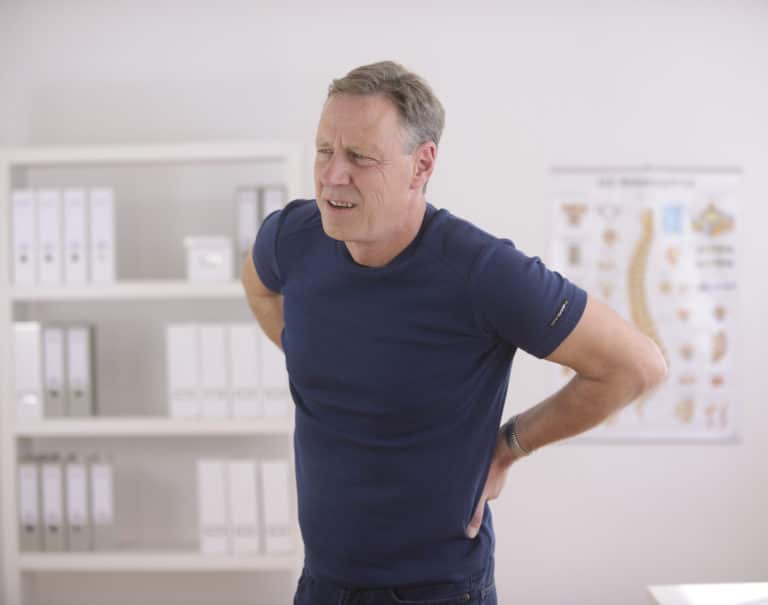On average, six million car accidents take place on roads across the United States. These accidents result in a lot of damage, including severe injuries for many people involved in them. So it is essential to seek medical advice if you have been involved in a crash.
During an accident, your spine and neck can absorb large amounts of traumatic impact. This type of impact and force leads to herniated discs, one of the most common car accident spinal injuries. If you have been involved in a car accident and are experiencing back pain, you may be suffering from one.
So what is a herniated disc, and how do you spot one? Read on to find out everything you need to know about the signs and symptoms of herniated discs.
What is a Herniated Disc?
Your spinal discs are cushion-like structures that sit in between the vertebrae of your spine and are an integral part of your spinal cord. These small, cushion-like structures have a more rigid outside and a softer inside.
During a car accident or any other traumatic event, they absorb a large amount of force. When this happens, the soft inner material, also known as the nucleus pulposus, can get pushed out through the hard exterior. This is known as a slipped disc or ruptured disc.
The initial injury might sound very painful, but most people don’t feel it when the injury first happens. Instead, a herniated disc starts to become painful when the soft nucleus pulposus makes contact with the nerves surrounding it.
So how do you know if you have damaged a disc during a car accident? Let’s take a look at some of the signs of a herniated disc.
Sitting is Painful
Lower back pain can be a symptom of a herniated disc in the lumbar region of your spine. This is the area towards the bottom of your torso.
If you have a herniated disc towards the base of your spine, sitting will put pressure on it. This makes it more likely that the leaking nucleus pulposus of your disc will rub against the surrounding nerves.
This can be very difficult. 25% of Americans are employed in a day job that involves a lot of sitting. It is crucial to get help as soon as you notice this type of injury so that your doctor can move as fast as possible to relieve your pain.
Your Muscles Feel Weak
When you suffer from an injury anywhere in your body, your other muscles in different areas of your body will begin to compensate. For example, as therapeutic work starts on your initial injury to relieve the pressure around the injury site, you may find that your muscles elsewhere feel tired and weaker than average.
On top of this, a herniated disc might be pinching a nerve leading to a specific muscle. Because of this, that muscle will feel more tired or weaker than expected.
This symptom can show up a long time after a car accident. So you may appear to have fully recovered but could still be suffering from the trauma of your accident. It is crucial to get this checked out as putting too much pressure on your nerves could cause permanent damage.
Lifting Objects is More Difficult
Having a herniated disc can make any sort of movement more difficult or painful. This is because spinal movement pushes specific nerves against the nucleus pulposus of your disc. This results in sudden pains and spasms.
Often this pain will travel in a specific direction, depending on your movement. For example, if you bend down to pick something up, it might travel down your back and legs. In contrast, your might feel shooting pain that travels along your arm or shoulder when you extend your hand out.
It Hurts to Cough, Sneeze, or Laugh
Laughing, coughing, and sneezing all require similar movements in your body. This increases pressure in your neck and your abdomen. If you have a herniated disc in any of these areas, laughing, coughing, or sneezing will suddenly become very painful for you.
You Get Pins and Needles in Specific Areas
Pain isn’t the only thing you can experience when something is pressing on a nerve in your body. Pins and needles are also extremely common and can be a sign of a herniated disc.
This doesn’t just happen across your back. In fact, it can happen anywhere along your arms or down to the back of your calves, depending on which nerve is being pressed.
However, most injuries will affect particular areas of your body, so the pins and needles should be localized. They might come and go, but they will often return in the same spot each time.
Pain in Areas Other Than Your Back
Depending on the location of your herniated disc, you may feel specific, constant pain in specific regions of your body.
If you have damaged the lumbar area of your spine, you could feel pain in your buttocks, calves, and feet. Injuries sustained in the cervical area of your spine will cause pain in your arms and shoulders.
Always Speak to a Professional
If you are concerned about a herniated disc, you must speak to an experienced professional as soon as possible. A good doctor will recommend the best treatment plans for how to treat your herniated disk. Some of your options should include rehabilitation and pain relief and management during your recovery.
So what are you waiting for? If you are concerned about any of the symptoms mentioned above, get in touch to make an appointment with an injury physician today. We’re here to help.

